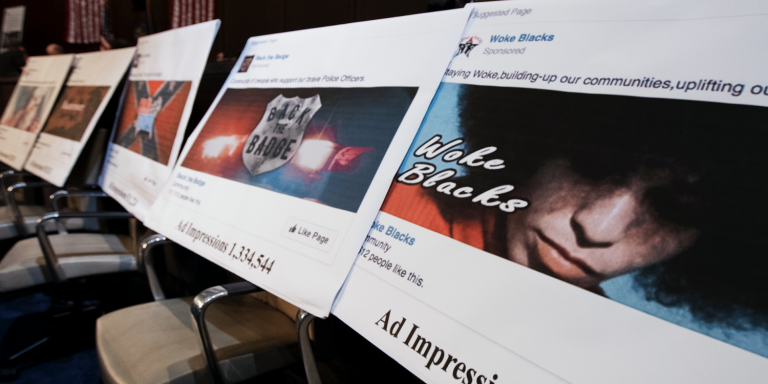INTELBRIEF
March 21, 2018
IntelBrief: Social Media Iceberg

- The scandal around Facebook and Cambridge Analytica is the tip of a social media iceberg.
- While the current focus in the United States is on manipulating voters in the 2016 U.S. election, the issues of privacy, information regulation, and social responsibility are enormous.
- The issues have long been predicted, as billions of people share private information that corporations then use for targeted advertising – or worse.
- Historically, privacy concerns centered on government surveillance. Today private companies have much more personal data on many more people.
.
The unfolding scandal involving the improper use by Cambridge Analytica of massive amounts of Facebook user data is perhaps the most unsurprising in recent history. The personal information of the billions who use social media has been available, just waiting to be exploited. Historically and even today, most focus has been on the danger of overly-broad government surveillance, yet via social media accounts, people have willingly handed over personal information to private companies – companies that are essentially unregulated. ‘If the product is free, then you are the product’ rings true now more than ever.
In January 2015, the Proceedings of the National Academy of Sciences of the United States of America (PNAS) published a study by Wu Youyou, Michal Kosinski and David Stillwell titled ‘Computer-based personality judgments are more accurate than those made by humans.’ Headlines exploded with pieces like Wired’s ‘How Facebook Knows You Better than Your Friends Do’ yet soon faded. The report found: 'This study compares the accuracy of personality judgment—a ubiquitous and important social-cognitive activity—between computer models and humans. Using several criteria, we show that computers’ judgments of people’s personalities based on their digital footprints are more accurate and valid than judgments made by their close others or acquaintances (friends, family, spouse, colleagues, etc.). Our findings highlight that people’s personalities can be predicted automatically and without involving human social-cognitive skills.'
Now companies such as Facebook and Cambridge Analytica, whose entire business models are built on the power of their data for targeted advertising and their abilities to influence people, are in the spotlight for their involvement in the 2016 U.S. election. Yet the power of their products is undeniable; after ten ‘likes,’ a computer might be able to better assess your personality than your spouse, family, and friends. Intelligence agencies around the world used cover means to obtain a fraction of the information on a person that is now available everywhere, instantly. Social media users’ ‘open source personalities’ can be exploited to allow firms such as Cambridge Analytica to provide micro-targeted advertising.
Increasingly, that advertising is built around fear and prejudice. Social media companies have proven to be incapable of regulating openly violent and hateful content on their platforms, regardless of the fine print of their terms of service. Racist groups are thriving in the U.S. and across Europe primarily because of social media and the targeted feedback loop inherent in the medium. The scandal with Cambridge Analytica is just the tip of the iceberg as it relates to the use of immense amounts of personal data in what these firms call ‘opposition research and intelligence gathering.’ In practice, this data can be used in smear campaigns and to blackmail powerful people, as seen in the undercover video of Cambridge Analytica CEO Alexander Nix, in which he brags about such activities against his clients’ rival politicians.
The growing, if belated, awareness of the ability for nefarious individuals and companies to exploit social media data is leading some to call for public congressional hearings, including with Facebook’s Mark Zuckerberg. While such hearings might be helpful to further elucidate the issue for governments and the public, what is required is a shift in how personal data is collected and stored. It is time for a serious discussion about the need for regulation in the absence of social responsibility and corporate accountability. Yet considering how many gain from the ‘open source personality’ model, makes such discussions difficult. There is power and influence to be had by exploiting the growing vitriolic social and political divisions roiling the West that are being inflamed and encouraged by anti-Western leaders, including Russian President Vladimir Putin.
.
For tailored research and analysis, please contact: info@thesoufancenter.org
[video width="960" height="540" mp4="https://thesoufancenter.org/wp-content/uploads/2018/03/Final-Edit-1-155.mp4" poster="https://thesoufancenter.org/wp-content/uploads/2018/03/Screen-Shot-2018-03-21-at-15.26.05-e1521635347589.png"][/video]